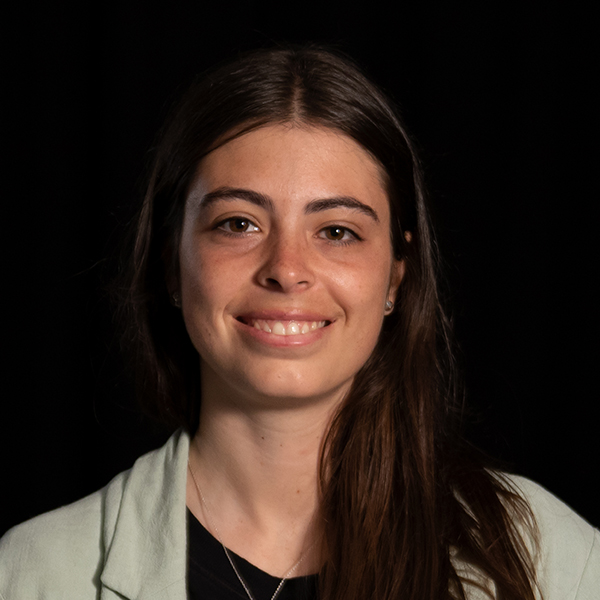 Por Federica Bordaberry
Por Federica Bordaberry
federicaborda
Lo que sucede es en un país de América Latina. Lo que sucede, no es en ningún país en específico, pero sucede allí, en un continente. Lo que sucede es que hay una niña de doce años que quiere ser corredora de motos, que adora las motos, que sueña con dedicarse a eso. Lo que sucede, también, es que la obligan a casarse joven y todos esos sueños se derrumban. Y, de forma desgarradora, también sucede esto: el marido, joven como ella, es quien cumple el sueño de ser motociclista.
Eso que sucede, es un cortometraje de 3:41 minutos que fue dirigido por Eugen Merher, un director de cine nacido en Moldova en 1990. Eso que sucede, tiene un título y es “Motociclista”. Eso que sucede, ganó premios en la categoría Young Director en Cannes, Francia.
Aunque todo eso que sucede, es mentira. Es ficción. Es, justamente, lo que tiene la ficción, un pacto con alguien que especta donde se sabe que lo que sucede no es cierto. Sin embargo, parece serlo. Quizá, todo eso tenga que ver con que, en América Latina, el matrimonio infantil todavía existe. En el mundo existe, pero en este continente todavía existe una cuota de niñas que se casan por tradiciones culturales de las que no pueden desprenderse por estar inmersas en esa propia cultura.
Es es, en esencia, un tema mucho más complejo. Tiene que ver con costumbres y tradiciones, con derechos humanos, con la pobreza, con la educación, con el machismo, con el humano en su totalidad. Con eso, con la experiencia de ser humano.
Él, el director, filmó ese cortometraje con película, de forma analógica, en un pueblo uruguayo llamado Migues, cerca de Minas y de Tala. Según el censo de 2011, Migues cuenta con una población de 2.109 habitantes. Y allí fue a donde llegó Eugen Merher a filmar, a contar una historia, a visibilizar un conflicto.
Los actores, también uruguayos: Clara Rolfo, Felipe Speranza, Malena Díaz, Catherine Ayala, Giuliano Giacussa, Oriana Rodríguez, Candela Dufourt, Candela Giacusa.
motociclista from Eugen Merher on Vimeo.
¿Cómo llegaste a Uruguay?
How did you get to Uruguay?
Estaba filmando un comercial en Uruguay. Estoy, técnicamente, sobre todo filmando comerciales en este momento. Solemos ir a diferentes países a filmar un comercial, a veces por cuestiones económicas, a veces por locaciones, y básicamente fuimos a Uruguay a filmar para una marca alemana de caramelos que se llama Maoam.
Es como un comercial muy normal para una marca alemana, pero la cosa es que quería filmar algo más. Viajamos tan lejos para el comercial y fue solo un rodaje de dos días, muy pequeño en términos de alcance. Sentí que quería usar las locaciones, porque estaba muy lejos, en un país tan exótico en comparación con Alemania, que quería rodar un cortometraje en Uruguay.
Antes de volar a Uruguay, no tenía ningún plan, solo sabía que quería filmar algo, simplemente no sabía qué. Así que eso fue algo así. Básicamente, le dije a la productora que extendiera mi vuelo. En lugar de quedarme solo una semana en Uruguay, lo extendí a cinco o seis semanas. Así que tuve algo de tiempo para inspirarme, buscar locaciones y luego se me ocurrió una idea para filmar algo.
I was shooting a comercial in Uruguay. I am, technically, mostly shooting commercials right now. We usually go to different countries to shoot a commercial, sometimes for economic reasons, sometimes for locations, and we basically went to Uruguay to shoot for a German brand of sweets called Maoam.
It's like a really normal commercial for a German brand, but the thing is that I wanted to shoot something more. We were travelling so far for the commercial and it was only like a two day shoot, very small in terms of scope, I felt I wanted to use the locations, because I was so far away, in such an exotic country compared to Germany, that I wanted to shoot a short film in Uruguay.
Before I flew to Uruguay, I didn’t have any plans, I just knew that I wanted to shoot something, I just didn’t know what. So that was sort of the thing. I basically told the production company to extend my flight, so instead of staying just one week in Uruguay, I extended it to five or six weeks. So I had some time to get inspired, to look for locations and then come up with an idea to shoot something.
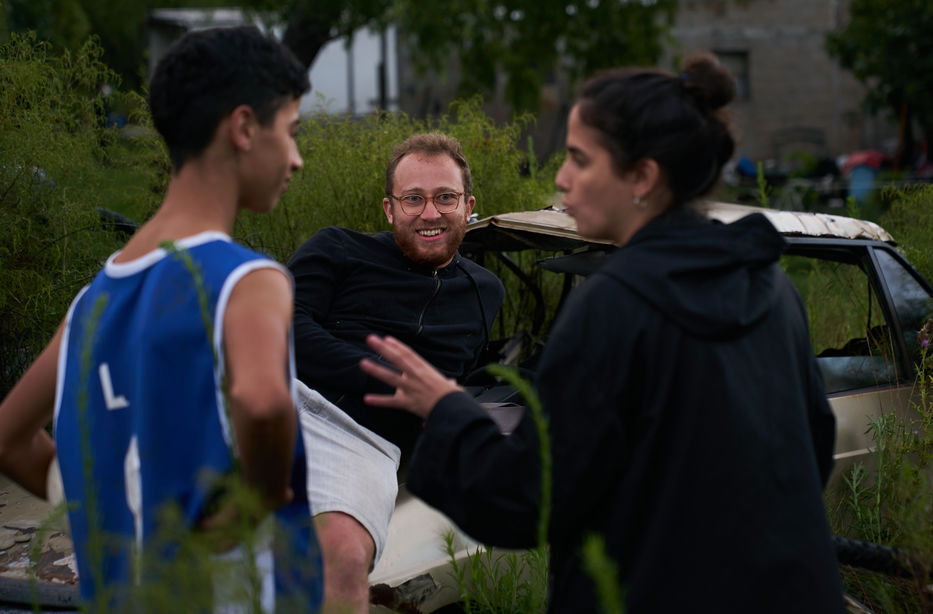
¿Tuviste una coproducción con Uruguay? ¿O cómo llegaste a todos esos lugares en un país en el que sos totalmente extranjero?
Did you have a coproduction with Uruguay? Or how did you get to all those locations in a country that´s totally foreign?
La productora con la que filmamos el comercial es una productora de servicios. Los contratás como productora y lo producen localmente, porque tienen todas las conexiones. Esa fue Metrópolis Films. Me puse en contacto con Metrópolis Films directamente, no a través de mi productora alemana, y les dije: "Hola, chicos, planeo filmar algo, como un proyecto apasionante que estaré financiando principalmente yo y la productora alemana también lo financiará un poco”.
Ese fue el punto de partida. Metropolis Films dijo, "te vamos a apoyar". Quiero decir, les pagué en el sentido en que les di un dinero de producción básico para que podamos filmar algo y reservar los equipos, pero hicieron un gran esfuerzo gratuito. Los productores eran, básicamente, gratis. Hicieron que este proyecto cobrara vida, por lo que también podría llamarse una coproducción porque, sí, todos estaban realmente involucrados.
Era casi como un proyecto estudiantil desde el corazón, solo por la pasión. Solo quería hacerlo, pero organizado profesionalmente.
The production company that we shoot the commercial with is a service production company. You book them as a production company and they produce it locally, because they have all the connections. That was Metropolis Films. I got in touch with Metropolis Films directly, not through my German production company, and told them, "hey, guys, I'm planning to shoot something, like a passion project that I will be financing mostly myself, and the German production company will also fund it a little bit”.
That was sort of the starting point. And then, Metropolis Films said "hey, we are going to support you". I mean, I did pay them in the sense that I gave them a basic production money so we can shoot something and book equipment, but they really put in a lot of free effort basically. The producers, they were basically for free. They made this project come to life so you could call it a coproduction as well because, yeah, everybody was really involved.
It was almost like a student project from the heart, just for the passion and something. I just wanted to make it, but professionally organized and everything.
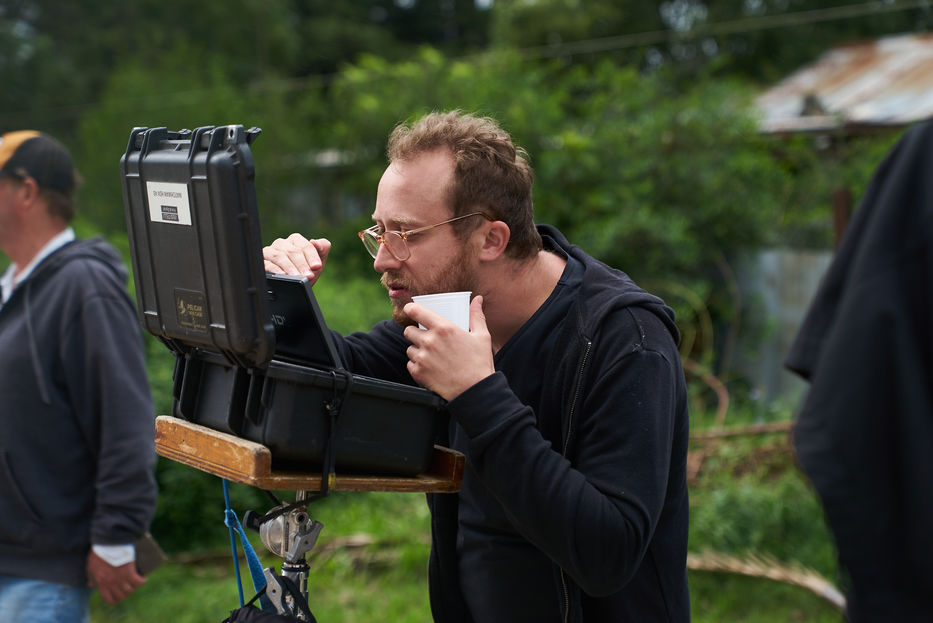
¿Por qué Eugen, de Alemania, se preocupa por este tema en América Latina?
Why does Eugen, from Germany, care about this issue in Latin America?
Para ser completamente honesto, no tenía ningún tipo de concepto antes de volar a Uruguay, excepto el comercial que se suponía que debía filmar, y también filmé, pero la idea surgió cuando estaba en Uruguay.
Era una combinación de cosas. Una es que solo quería hacer un proyecto apasionante y filmar un cortometraje con una historia que me conmoviera. Y, luego, vi algunas cosas que me entraron inconscientemente, como lo de la moto. Sentí que en Montevideo vi a mucha gente en moto por las playas, ese tipo de imágenes. Todo se abrió paso en mi mente.
Así que la primera inspiración fueron las motocs. Eso fue lo principal y luego estuve leyendo artículos sobre Uruguay y temas culturales. Luego, también, tropecé al azar con algunos artículos de Unicef sobre el matrimonio infantil. Eso fue súper aleatorio, para ser honesto. Lo del matrimonio infantil fue realmente aleatorio.
Pero debido a que tenía esto de la motoen mente y luego este artículo, hicieron click. También tenía una fecha límite porque sabía que me iba a quedar seis semanas en total y quería irme del país con una película en la mano, habiendo hecho algo. El plazo, la moto, el artículo, así fue.
To be perfectly honest, I didn’t have any kind of concept before I flew to Uruguay, except for the commercial that I was supposed to shoot, and also shot, but the idea came when I was in Uruguay.
It was a combination of things. One thing is I just wanted to do a passion project and just to shoot a short film with a story that touches me. And then, I saw a few things that just subconsciously got into me, like the motorcycle thing. I just felt like in Montevideo I just saw a lot of people in motorcycle by the beaches, all these kinds of visuals. It all made its way into my mind.
So the first inspiration was motorcycles. That was the main thing and then I was reading through articles about Uruguay and cultural issues. Then, also, I randomly stumbled across some Unicef articles on child marriage. That was super random, to be honest. The child marriage thing was really random.
But because I had this motorcycle thing in my mind and then this article, they kind of clicked. I also had a deadline because I knew I was going to stay for six weeks in total and I wanted to leave the country with a film in my hand, having made something. And so the deadline, motorcycle, the article. That's how it was.
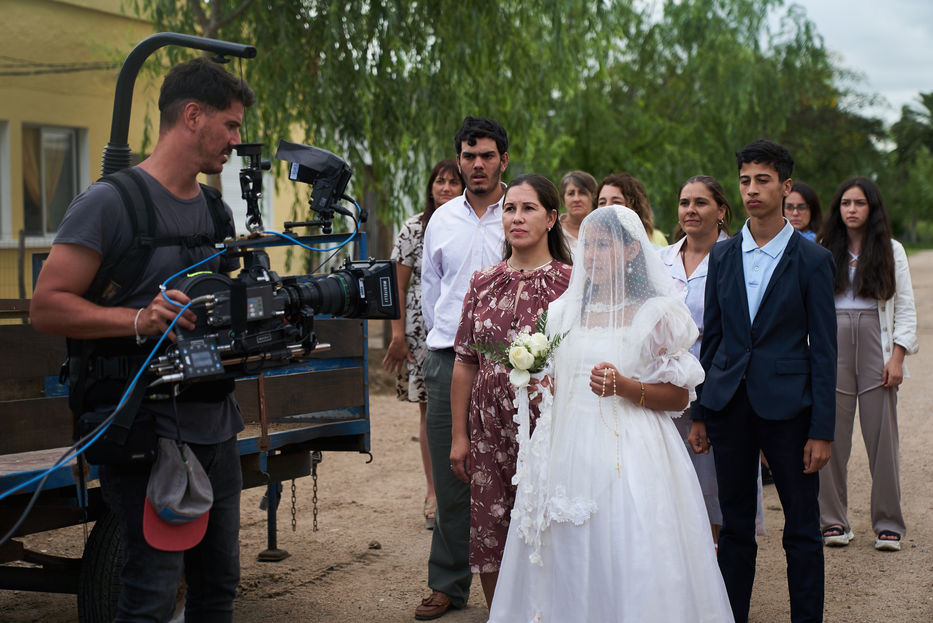
¿Por qué la decisión de filmar en película, en film?
What about the decision of making your movie in film?
Eso era algo que siempre quise hacer, desde hace un tiempo. En este momento es algo muy de moda, no solo ahora, sino durante los últimos cinco, seis, siete años o incluso más. Hay muchas productoras que lo hacen, y en Vimeo la gente sigue publicando cosas que filmaron de forma analógica.
Siempre me ha gustado su apariencia, pero muchos de los videos que he visto, que están grabados así, siento que se basan en cosas puramente visuales. Son muy agradables, pero hay algunos videos que vi que están filmados que son simplemente una historia muy agradable y la película es algo casual. La mayoría de las veces, cuando filmás en una película, la gente trata de mostrar cuando se quema la película y lo que sea, es algo de moda, pero quería hacerlo yo mismo y experimentar por qué la gente está tan enamorada de ella.
Luego, cuando realmente pude hacerlo, fue una experiencia agradable y aterradora. Porque tenés una cantidad limitada de material de película, por lo que no podés filmar tanto como quieras. Cuando disparás en digital es muy fácil. La cámara sigue rodando y luego hacés muchas tomas, hablás con los actores mientras la cámara sigue rodando, probás muchas cosas. Pero cuando tienes material de película...
Cuando escuché el primer rollo corriendo, realmente escuchás el sonido de la cámara, mi cuello se puso muy frío y empecé a sudar. Yo estaba como, "ahora las cosas se están volviendo reales". El material de película está rodando y también era muy costoso, incluso, importar todo el material de película de Brasil. Hubo un pequeño problema con la importación y tuvimos que pagar impuestos, además. Fue una locura, pero fue una aventura para mí intentarlo.
Tenía tres vuelos desde Uruguay para llegar a Bélgica, y luego, por la noche en Bélgica, lo dejé en un buzón, todo el material de la película, que era la única locación de la película que filmamos, era lo único que contenía la película. Conduje hasta el hotel y no pude dormir en toda la noche. A la mañana siguiente, el laboratorio dijo que las películas estaban bien, que se veían bien y me sentí aliviado. Fue una aventura probarlo por mí mismo porque vi que otras personas lo hacían y solo quería conocer la emoción y conseguirlo, sentirlo.
That was something that I always wanted to do for a while now. Right now it is a very trendy thing to do, not just right now, but for the past five, six, seven years or even longer. There are lot of production companies doing it, and on Vimeo people keep posting stuff that they shot analogue.
I've always loved the look of it, but a lot of the videos that I've seen, that are shot like this, I feel they are based on pure visual things. They are very nice, but there are a few videos that I saw that are shot in film that are simply a really nice story and the film thing is something casual. Most of the time when you shoot on film people try to show when the film burns and whatever, it's just a trendy thing, but I wanted to do it myself and to experience why people are so in love with it.
Then, when I actually got to do it, it was a nice scary experience. Because you have a limited amount of film stock, so you can´t shoot as much as you want. When you shoot on digital it is really easy. The camara just keeps rolling and then you just do a lot of takes, talk to the actors while the camara keeps rolling, you try out a lot of things. But when you have film stock…
When I heard the first roll sort of running, you really hear the sound of it from the camara, and my neck got really cold and I got really sweaty. I was like, “oh, shit, now things are getting real”. The film stock is rolling and it was also really expensive to even get the whole film stock imported from Brasil. There was a little bit of an issue with the import and we had to pay taxes on top. It was crazy, but it was an adventure for myself to kind of try it and also.
I had three flights from Uruguay to get to Belgium, and then at night in Belgium I dropped it into a mail drop box, the whole film stock, which was the only location of the film that we shot, It was the only thing holding the film. I drove to the hotel and I couldn’t sleep in all night. Next morning, the lab said the films were fine, that they looked good and I was relieved. It was an adventure to try it out for myself because I saw other people do it and just wanted to know the thrill of it and get it, feel it.
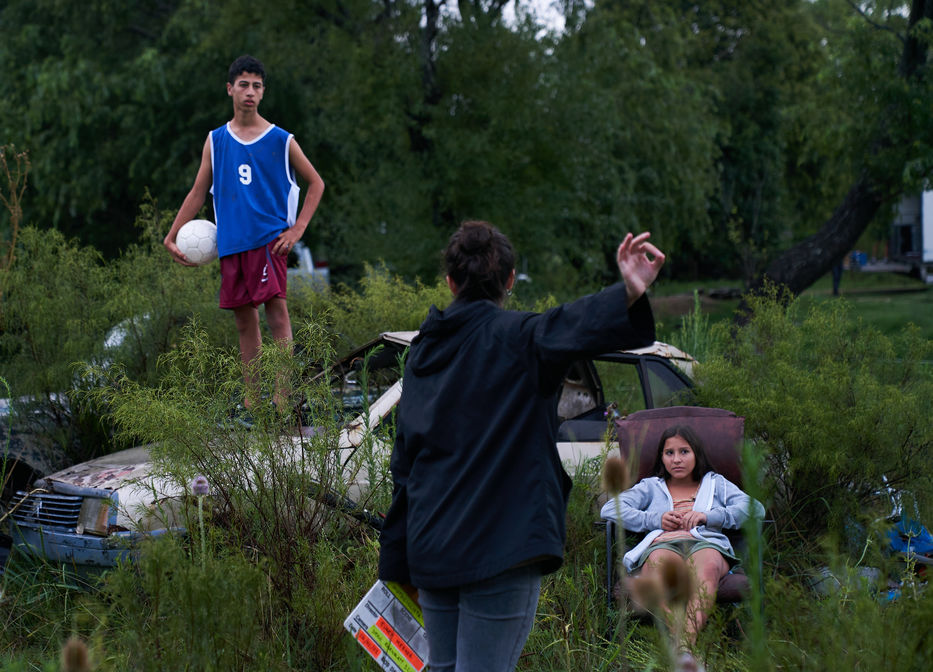
Eugen, me puse en contacto con una persona que se hizo amiga tuya durante tu estadía en Uruguay, Clara Touris. También ayudó en la producción de tu cortometraje. Ella hizo algunas preguntas para ti y esta es la primera:
¿Cómo era ser extranjero en un pueblito como Migues? ¿Tuviste algún problema con el idioma?
Eugen, I got in touch with a person that became friends with you during your stay in Uruguay, Clara Touris. She also assisted in production for your short movie. She made some questions for you, and this is the first one:
How was it to be a foreigner in small town like Migues? Did you have any problems with language?
De hecho, fue muy divertido porque cuando hice la búsqueda de locaciones y hablé con la gente, por supuesto, mi español es muy limitado, así que Clara me ayudó mucho con eso, porque ella también estaba buscando, pero no en todas las sesiones de búsqueda. Pero durante las primeras sesiones de exploración ella estaba hablando con la gente.
Tenía que seguir buscando y, a veces, tenía que conducir yo mismo a los lugares. Básicamente, tenía que acercarme a la gente y decir muy pocas palabras con mi español entrecortado. Tenía algunas palabras y oraciones básicas, e hice mucho movimiento con mis manos para explicarle a la gente. La gente de los pueblos era muy abierta. Me dejaron entrar a sus casas y empezaron a hablarme en español y explicarme cosas que apenas entendía. Fue realmente agradable ver diferentes tipos de realidades de cómo vive la gente porque cuando entras en la casa de alguien y luego entras en las casas de cinco personas diferentes en un pueblo, todos viven de manera diferente, y es otro país, otro continente. Eso, en sí mismo, fue parte de por qué todo esto fue súper especial y más divertido que solo una película en sí. Fue realmente una experiencia.
It was actually really funny because when I did the location scouting and talked to people, of course my language is very limited, so Clara helped a lot with that, because she was also scouting, but not in all scouting sessions. But for the first scouting sessions she was talking to the people.
I had to keep on looking and sometimes and I had to drive myself to the locations. I had to basically go up to the people and say very few words with my broken Spanish. I had a few basic words and sentences, and did a lot of movement with my hands to explain to the people and then sometimes. The people in the villages, everybody, was super open. They let me inside their houses and they just started talking in Spanish to me and explaining stuff I hardly understood. It was really nice to see different sort of realities of how people live because when you enter somebody’s home and then you enter five different peoples homes in a village, everyone lives differently, and it´s another country, another continent. That, in itself, was just part of why I made this whole thing super special and more fun than just a film itself. It is really an experience.
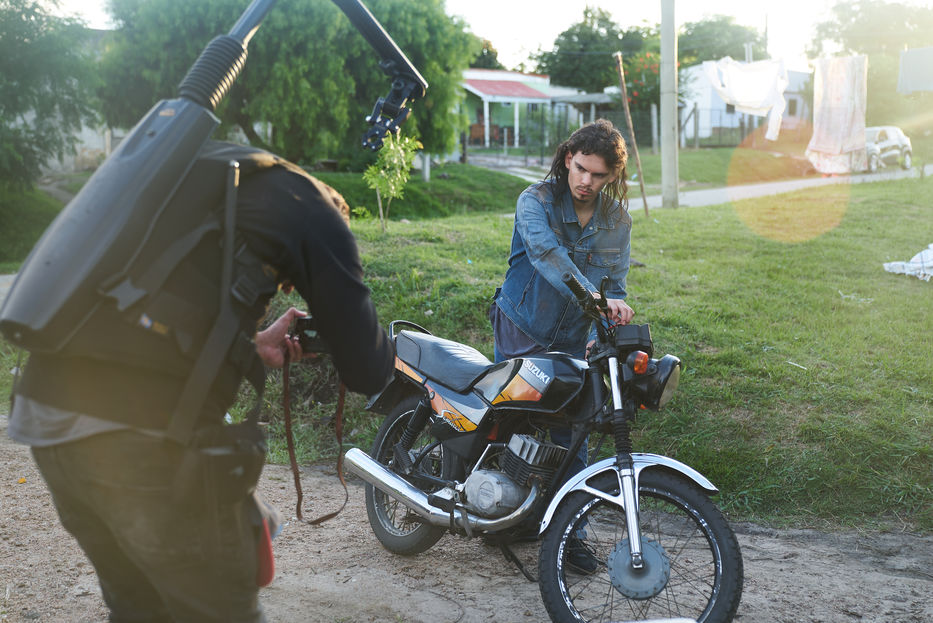
Otra de Clara. Estabas en lo que llamamos el “Uruguay profundo”, en Migues. ¿Cuál fue la idea, en términos culturales, que te llevaste de Uruguay después de eso?
Another one from Clara. You where in what we call the “deep Uruguay”, in Migues. What was the cultural idea you got from Uruguay after that?
Al principio, estaba en Montevideo, así que fue una experiencia completamente diferente. Pero lo rural es muy parecido. Soy de Europa del Este y de Moldavia. Yo también hice, no una cosa de exploración, pero estuve allí, Kiev, en Ucrania. También hice exploración en las zonas rurales, y en el campo, y siento que son vibraciones muy similares. La gente del campo siempre tiene este tipo de apertura de corazón cálida, siempre lo mismo. Siento que en todo el mundo es exactamente igual, y cada vez que decís que querés filmar una película, la gente siempre es muy abierta. Siempre es emocionante para la gente, creo, especialmente en el campo porque no sucede con demasiada frecuencia.
En la ciudad, es diferente, por supuesto. En el campo siento que la gente siempre está emocionada porque algo está pasando, alguien está interesado en cómo viven. La gente intenta, por supuesto, ordenar, pero cuanto más natural, mejor. Cada vez que estuve en algún tipo de ubicación en el campo, explorando, siempre ha sido así, en todo el mundo, es una locura.
At first, I was in Montevideo, so that was a whole different experience. But the rural is very similar. I'm from Eastern Europe, and from Moldova. I also did, not a scouting thing, but I was there, Kiev, in Ukraine. I also did scouting in the rural and the country side and I feel like it is very similar vibes. People on the countryside always have this kind of warm heartedness openness, always the same. I feel like all over the world it's exactly the same, and whenever you say you want to shoot a film, people are always very open. It's always exiting for people, I think, especially on the countryside because it doesn’t happen too often.
In the city, it is different, of course. In the countryside I feel like people are always excited something is happening, something is going on, somebody is interested how they live. People try to, of course, tidy up, but the more natural it is the better. Every time I was in some kind of countryside location scouting its always been like that, all over the world, Its crazy.
 Por Federica Bordaberry
Por Federica Bordaberry
federicaborda
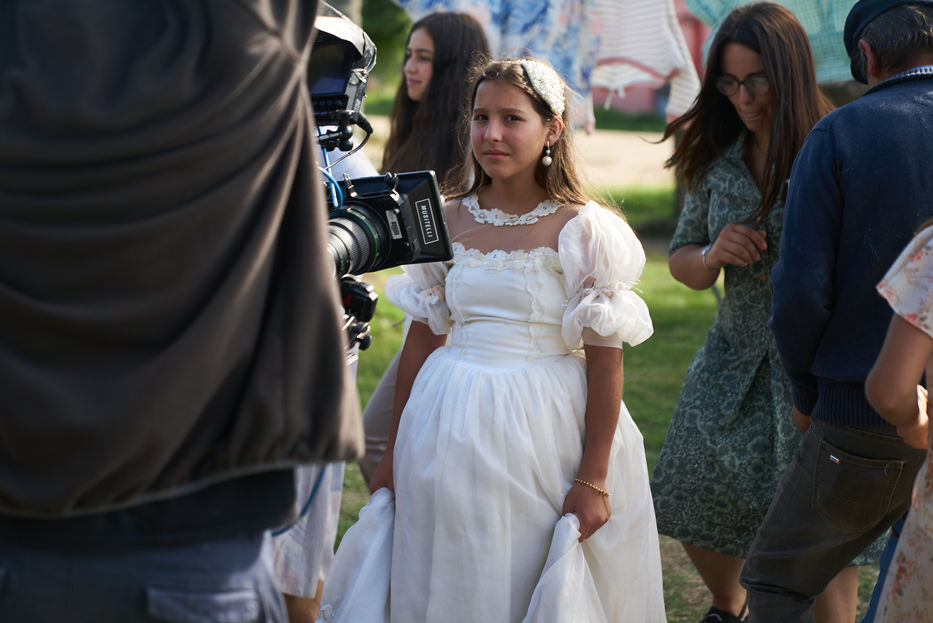

Acerca de los comentarios
Hemos reformulado nuestra manera de mostrar comentarios, agregando tecnología de forma de que cada lector pueda decidir qué comentarios se le mostrarán en base a la valoración que tengan estos por parte de la comunidad. AMPLIAREsto es para poder mejorar el intercambio entre los usuarios y que sea un lugar que respete las normas de convivencia.
A su vez, habilitamos la casilla reportarcomentario@montevideo.com.uy, para que los lectores puedan reportar comentarios que consideren fuera de lugar y que rompan las normas de convivencia.
Si querés leerlo hacé clic aquí[+]